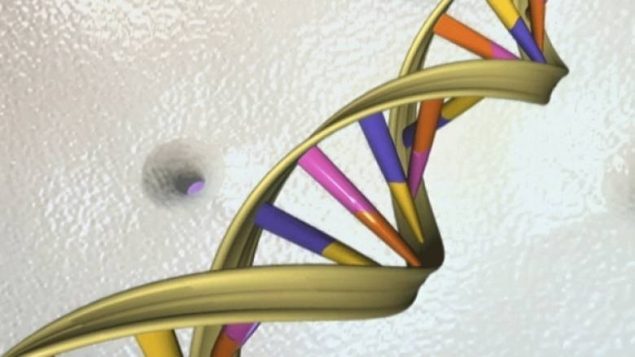Protecting your right to your genetic information
In 2017 Canada passed the Genetic Non-Discrimination Act, to protect people from being discriminated against over revelations of their genetic information from lab testing and any possible anomalies or mutations.
Such discrimination could be in the form of refusing insurance coverage as one example.
Quebec recently challenged the law as unconstitutional as an infringement of its own jurisdiction.
This has concerned Yvonne Bombard (PhD) who co-authored a commentary in a medical journal over the importance of the legislation.
She is a genomics and policy researcher with the Li Ka Shing Knowledge Institute at St. Michael’s Hospital in Toronto and professor at the University of Toronto’s Institute of Health Policy, Management, and Evaluation.
ListenThe law bars any person from requiring individuals to undergo a genetic test or disclose the results of a genetic test as a condition of providing goods or services, or entering into a contract, such as for employment or insurance coverage.

Yvonne Bombard (PhD), St Michael’s Hospital researcher, and University of Toronto assistant professor. Photo: supplied
Professor Bombard says because of the law, people who need genetic testing have been coming forward to get the needed test information which can help deal with unanswered health issues. Without the law, she says people would often not come forward for fear that a genetic anomaly might result in various forms of discrimination, including limiting job advancement, adoption, and difficulties in getting insurance coverage to name a few.
Insurance agencies have been seeking such information saying it is needed to determine client (actuarial) risk.
Prime Minister Justin Trudeau opposed the bill, arguing that it was unconstitutional as it infringed on provinces’ rights to regulate the insurance industry, an argument put forward by the province of Quebec soon after the Bill was passed into law.

Bombard says without the law, fears of how their genetic information can be used against them would keep some people from taking genetic testing which could be critical to their health care
Photo :Jorge Dan Lopez/Reuters)
An appeal is underway in the Quebec courts and if the appeal is upheld, the case will likely go to the Supreme Court of Canada (SCC).
Professor Bombard understands that the insurance industry is market driven and needs certain information to assess risks, but points out that scientists still have much to learn about genetics and disease risk and the insurance industry and others may not be qualified to interpret genetic information and as such, any potential risks.
She says a great many people have genetic anomalies related to disease but who never develop it. As such basing decisions on employment or insurance coverage, or a host of other issues regarding an individual’s genetic information may not be reliable or justified.
If the SCC agrees with Quebec, Bombard says this will enable genetic discrimination which is a bigger problem than most realise since 40% of respondents from her national survey reported experiencing genetic discrimination in Canada She says the issues go far beyond the insurance or employment settings especially in terms of giving people the confidence to come forward to access genetic tests regarding health issues which can provide answers to long-term health issues, while having the assurance that their private information will stay private.
Additional information







For reasons beyond our control, and for an undetermined period of time, our comment section is now closed. However, our social networks remain open to your contributions.